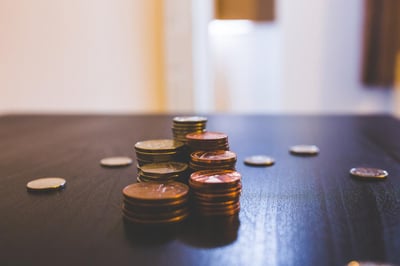 If you’ve ever wanted to invest in real estate, the first thought that likely comes to mind is whether or not you can afford it.
If you’ve ever wanted to invest in real estate, the first thought that likely comes to mind is whether or not you can afford it.
Money is the central theme around investing in real estate—spending it to get properties and improve properties, and then earning it from tenants, building up savings or a retirement fund, and then repeating the cycle as it builds on itself.
But there’s a major hurdle that can come across the path of a would-be investor: bad credit. Bad credit or a general lack of funds can seem like a massive problem. After all, doesn’t acquiring real estate require a down payment and approval for a mortgage? How in the world can you get approved if your credit is terrible?
Okay, here’s the thing: you can do it. There are a few strategies that make it possible. But there’s a more pressing question of should you do it.
And here’s why: if you have bad credit, or no money, it’s likely symptomatic of some bad money habits. If you’re about to go into something like real estate investment, where you’re dealing with a lot of money and relying on money management skills to do well, you’ve got to ditch those bad habits for good ones, and pronto.
So before you try to find a workaround to buy, despite bad credit, maybe you should work on undoing some damage and learning better habits.
Repairing the Damage of Bad Credit
Commit to Paying Your Bills on Time
This one is simple. When your credit card bill comes, just pay it. Any bill, actually. Pay it. With so many ways to automate your bills, there’s really no excuse. Pay your bills on time. And for credit cards, pay more than your minimum amount due! Missing bills not only incurs charges, but it will hurt your credit score. Don’t let that happen.
Pay Off Your Balances ASAP
Don’t play the balancing act of pay a little bit off and then spending more than you paid, so on and so forth. Just pay off your credit cards. Use them sparingly in the first place, and pay off the balances as soon as possible. If you have to leave a balance on them for a little while, don’t let it exceed 30% of your maximum credit limit.
The faster you can pay your balance off, the better your credit will be. Plus, you won’t be slapped with any finance charges.
Keep a Minimum Number of Credit Cards
Applying for a ton of credit can really hurt your score. So keep your number of credit cards down to a minimum. Keep one or two and build good credit on those. You don’t need a bunch of credit cards. Maybe you were dazzled in college by the extra 15% off stores would offer you if you applied for their store card, but they’re just not a good idea to have!
Lighten your wallet. Cancel the cards you don’t need and stick to a few that have good rates and rewards.
Delay Gratification
The biggest problem people tend to have with credit cards is that they are used for instant gratification...or to bail them out of a problem created by instant gratification.
Don’t be that person!
Even if that isn’t your problem with credit, start identifying what your shortcomings are. Why is your credit so bad? Youthful indiscretion? Bad money management? Impulse purchasing? Whatever it may be, you need to sort it out now.
After you deal with those problems, then you can start thinking about buying real estate.
Ways to Buy Property With Bad Credit or No Money
A Partnership
Whether it’s a lack of a mortgage or of money, a partner in real estate investment can help you acquire the property you desire. A 50/50 split, or whatever you need to work out, may not be ideal for you, but it allows you to start earning income and moving towards financial freedom so you won’t need a partner in the future. A partner means you can get by without the bank, or through using their good credit to acquire a mortgage, while you help with the down payment.
Seller Financing
Seller financing is becoming increasingly popular. It’s something that you should only do on properties that the seller has paid off—no outstanding mortgages. It’s an agreement in which you, the buyer, basically have a mortgage with the seller. It’s a seller-financed loan where you pay them monthly, rather than the bank.
This is a good solution for both seller and buyer, because you don’t have to show your credit score and you can space out your payments, and the seller gets an income stream.
Private Money Lenders
Private money lenders are another popular way to go. These can be friends or family, but they can also be professionals in the field who see potential in your investment career. Unlike hard money lenders, private money lenders typically lend based on a personal relationship with you.
That said, you need to be sure you’re going to be able to give these people a good return on their investment. You don’t want to take advantage of friends and family only to lose all of their money.
For would-be real estate investors in a pinch, it might be better for you just to wait until your financial situation is on more solid footing before you dive into real estate investment. After all, this business isn’t without risk, and inexperience with money can cost you!
Don’t go in without knowing that you can manage your money—or someone else’s money—well.












